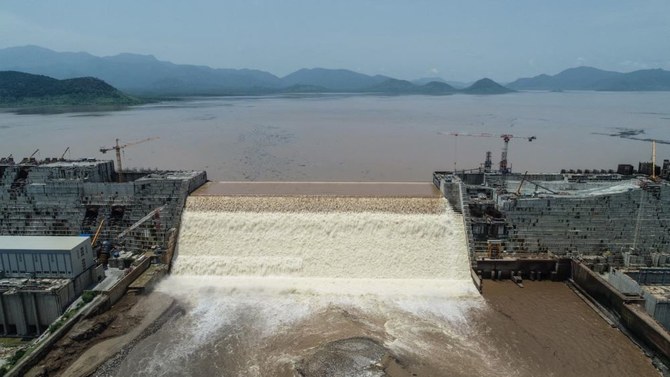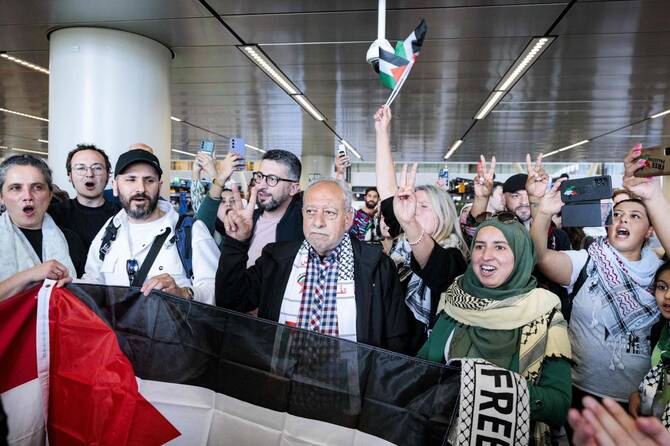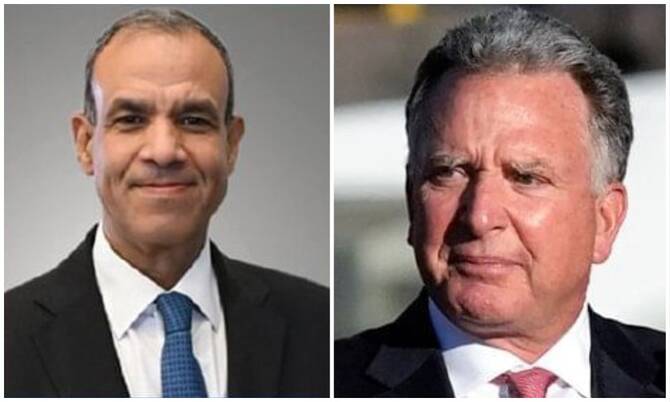CAIRO: Egypt’s foreign minister has reiterated his concerns over Ethiopia’s unilateral practices regarding the Grand Ethiopian Renaissance Dam which, he says, could pose a great danger to his country “which suffers from unique water scarcity as the driest country in the world.”
Egypt receives more than 90 percent of its scarce fresh water from the Nile, and fears the dam could devastate its economy, while Ethiopia says the construction is key to its economic development and power generation.
Sudan is concerned about the dam’s safety and regulating water flows through its own dams and water stations.
As a result, a bitter dispute between the three countries over the filling and operation of the dam remains unresolved.
Sameh Shoukry was speaking at the opening of the 159th session of the Council of Arab Foreign Ministers, under the presidency of Egypt, on Wednesday.
He said: “I do not fail to address a pivotal issue of advanced priority, which has fateful consequences for Egypt’s national security, namely the danger of unilateral Ethiopian practices on the common river basins, of which the GERD is the most prominent current manifestation.”
Shoukry highlighted Ethiopia’s continuing process of building and filling the dam without reaching a binding legal agreement with the two downstream countries.
He stressed Egypt’s reliance on its “Arab brothers to force Ethiopia to abandon its unilateral, non-cooperative practice,” and to show the “necessary political will to adopt any of the compromise solutions that were proposed at the negotiating table, and that proved to fully achieve Ethiopia’s economic interests without prejudice to the destinies of the peoples of the downstream countries.”
Shoukry, chairman of the session, announced the decision to put the GERD as a permanent item on the agenda of the Arab League.
Addressing a press conference alongside Ahmed Aboul Gheit, the Arab League’s secretary-general, Shoukry said the decision confirmed the commitment to “protecting the rights of the two downstream countries.”
He added: “Egypt has been raising the issue of GERD with the Arab League for years.
“It was raised in consultative meetings, and an Arab position was issued on it four years ago, but it is important that there is an Arab decision supporting the water rights of Egypt and Sudan.
“This is something that concerns the peoples of Egypt and Sudan — more than 140 million Arabs — and it has repercussions for the rest of the brotherly Arab countries.”
The Arab League’s decision “calls on Ethiopia to show flexibility on the issue of GERD, as it is related to Arab national security,” Shoukry said.
He added: “Ethiopia must take note that there is a common vision for 22 Arab countries in this file, especially since there are bilateral relations and interests between Ethiopia and Arab countries, and these relations may be affected by this issue.”
Shoukry said clinging to unilateral action will lead to more tension and negative interaction between the countries affected by the dam.
He added that Egypt was working to strengthen joint action and relations between the Arab League and regional groupings.
He went on to say that a decision was taken to hold a meeting between Arab foreign ministers and their European counterparts in June.






















